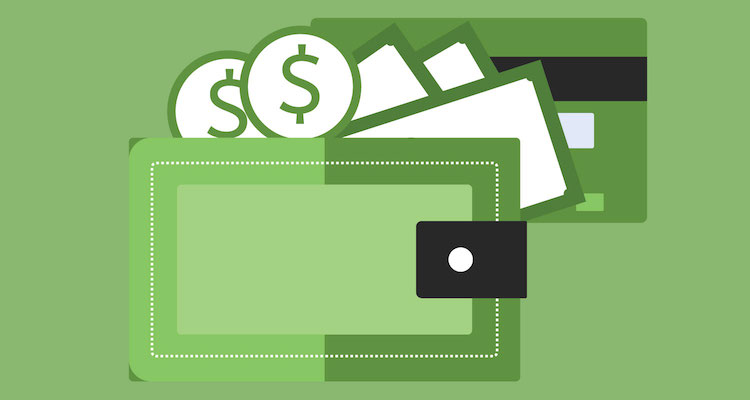As a new business, you want to make money.
But sometimes it’s easier said than done.
Making money isn’t always about just receiving payment for goods or services. Ensuring that you are paid on time and that you are paid the right amount matter. Plus, you have to balance the money you make with the expenses that go out.
As you get ready to launch your career as an entrepreneur, you need to be on top of this whole making money thing. Here’s what you need to know about making money as a new business:
Table of Contents
Toggle1. Set Your Prices
This is harder than it seems – and it’s definitely part of making money. When deciding how to set your prices, it’s essential for you to understand the value you provide. The greater the value, the more you can charge. This is true whether you offer a product or a service. Items to keep in mind as you set your prices include:
- Quality
- Cost (in time and materials) of your product or service
- Experience (if you provide a service)
- Uniqueness
- Need for the produce or service
- Speed it can be provided
- Market
- Target audience
Trying to find the right price level can take a little bit of time and tweaking. Do some market research and make sure you are in line with your target audience in pricing. You might need to change your approach until you find that sweet spot where you are charging enough that people value what you offer, but not so much that your target market can’t afford it.
2. Create Payment Terms
Many business owners overlook this aspect of making money. However, it’s an important one, especially if you ship items in bulk or if you provide a service.
Payment terms create an expectation for your clients. A policy about when payment is due, and where to send it can make things clear for your clients and customers. The right invoicing software can help you clearly communicate your payment terms, allowing you to get paid faster.
Additionally, adding terms like a fee for late payments can further encourage on-time payments. It’s a good way to stay on top of the situation and increase compensation for the time and stress involved in chasing down payments.
As you create payment terms, make sure you include them in your contracts and other materials. You want to be clear up front with clients and customers so that they know what to expect. Plus, having this information in a contract means it’s something you can go back to and reference as needed. It’s “official.”
3. Accept Varied Payment Methods
How will you accept your payments, once you start making money?
Thinking ahead to how your customers are likely to pay is a big part of successful business growth. In today’s world, there’s a good chance you need to accept credit cards.
No matter where you are located, chances are that someone wants to pay you via credit card. Being able to accept credit card payment easily, and at a low cost, is an important part of good business.
But think of other forms of payment you might be able to accept. While it’s not really widespread right now, it can make sense to consider setting up to accept Bitcoin or other cryptocurrencies. Fees are often low, and you can take care of things almost instantly, without worrying about exchange rates.
Also consider payment methods like PayPal, Dwolla, Venmo, and other ways that people like to pay today. It’s not always in your best interest to accept everything when it comes to payment, but you can get an idea of what your clients or customers want. Pay attention to the ways they are likely to pay and make sure you offer the options they prefer.
4. Manage Your Cash Flow
You might be surprised to discover how important it is to manage your cash flow. Making money – and doing it successfully – isn’t just about how much you have coming in.
What goes out, and when you have the money coming in and out, matters just as much. It might even matter more.
Managing your cash flow is a big part of making money.
First of all, you have to know where that money goes when you get it. Are you paying attention to overhead costs like office space, equipment, and utilities? Do you need to pay workers? What sorts of expenses do you have for inventory and supplies?
Understanding your expenses is a big part of making sure you are profitable.
You also need to when the money moves through your system. Pay attention to when you receive payment for the things you sell or the work you do. Being aware of the timing associated with your money matters. Try to arrange things so that your in-flows match your out-flows. You don’t want to end up in trouble for being mismatched and then running out of what you need.
Map out the way money moves through your business economy. This will help you figure out how much you need, and when you need it. Stay on top of your business cash flow, and you will have much more success when making money.
5. Pay Your Taxes
This doesn’t seem too important, especially when we’re talking about making money. However, when you don’t pay your taxes, things can get pretty dicey for the rest of your business.
The penalties can add up and cut into your profitability. What happens if you end up in even more trouble than before? Paying your taxes is a major part of managing your business.
The IRS expects you to pay quarterly, so take that into account when you’re setting things up.
You should also be on top of the situation if you have employees. A good payroll program can help you figure out how much you owe for the employer portion of payroll taxes. A good bookkeeper can help as well.
As you get your business off the ground, thinking about taxes and preparing for them is a good idea. I know. I didn’t prepare well for taxes when I first started my business and it meant frustration and extra costs. Think about this aspect of your business at the beginning – even before you start making money.
6. Invest Back Into Your Business
Finally, invest back into your business. Don’t take all the money you earn and spend it on yourself. Make sure you are putting some of it back into your business.
It takes money to make money. That means you need to invest in marketing. You should also invest in innovation. What are some of the ways you can put that money back into your business so that it grows even further?
Successful entrepreneurs often put money back into their businesses. They make their products better. They expand their offerings. They innovate ways of doing things. They spend money on marketing and advertising.
There are a lot of cool things you can do to grow your business once you start making money. Pay attention so you can use them in your business.
Planning is key when your business starts making money. If you have some of your planning done ahead of time, you will be in a better position down the road.










